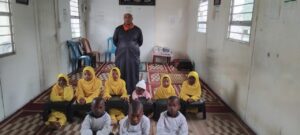The heart-rending decision to suspend congregational salah at all masajids across SA, was not easy one – but had to be done, says Moulana Ebrahim Bham, Secretary General of the Jamiatul Ulama South Africa.
The world has entered a new era of challenges presented by the Coronavirus pandemic. Faith communities have come out of the April holiday season which played out in the most surreal fashion in living memory.
Prior to this, Muslims have been witnessing an absence of pilgrims and tiny-sized congregations made up of mainly caretakers of the otherwise bustling two noble sanctuaries of Makkah and Medina. There has been sufficient disquiet, however, caused by the initiative of a segment of the Muslim community that has decided to challenge the current national lockdown that was declared by the President Cyril Ramaphosa, taking effect from 27 March 2020.
As a measure to contain the spread of the coronavirus, the lockdown entails a prohibition of gatherings, and extends to religious congregations. A segment of our community has sought concessions from these regulations so that Muslims can be allowed to congregate in mosques.
The Jamiatul Ulama South Africa (JUSA), the council of Muslim theologians based in Johannesburg, had called for the suspension of congregations in mosques, a day before the eventual declaration of the national lockdown, a presidential prerogative that is consistent with the country’s disaster management legislation.
Expert counsel, from among others, Muslim medical professionals who share concerns for the welfare of the community and the country at large, informed us to take this spiritually drastic but necessary step without any further delays. This measure was also consistent with the measures that have since widely been adopted in other Muslim countries across the globe.
There were also some concerns that members of our community who had returned from overseas countries such as China and India had the potential of asymptomatically transmitting the Covid-19 virus locally, through their social interaction by participating in religious gatherings and congregations.
Our assessment led to the resolution to suspend congregations because the level of the risk of Covid-19 spreading among Muslims, notwithstanding our ritual hygienic practices, is high. As a matter of perspective, Muslims are strongly encouraged to perform their obligatory prayers at the mosque. This means a congregant could be at the mosque as much as 35 times a week. That frequency of congregational interaction increases risk among Muslims more than in any other faith community.
At the stage when JUSA’s decision was taken, we were also informed by the experience of the Muslim communities overseas. In the United Kingdom, where Muslims make up only 2% of the population, they disproportionately contributed up to 25% of reported Covid-19 related fatalities. The existence of Prophetic traditions on the containment of epidemics is proof that the first generation of Muslims was not only aware of the phenomenon, but would also become its victims.
Responsibility
It was not an easy declaration to make, considering how attached Muslims are to the mosque, a sanctuary of congregational prayers, retreat and community interaction. However, Islam exhorts levels of discipline, and compels believers to take courses of action that every particular situation, assessed on its own merits, requires. We are in a moment that demands responsibility towards ourselves and the wider society to which we belong.
As sincere as we may be in yearning for a return to places of worship that have defined our spiritual lives, sense of community and identity throughout the ages, the demand that this moment places on us is to save lives. It is therefore imperative to perceive the potential extent of harm the pandemic presents, and find the best approach of mitigating this danger.
Seeking concessions may as well be within the rights of the community to which we belong. There should, however, be an understanding that we cannot exclusively seek a perfection of ritual worship at a time when doing so entails endangering our own lives, lives of those close to us and the rest of the community, which we are part and parcel of.
JUSA and other formations of Muslim theologians in the country do not derive any utility or joy from the suspension of congregational prayer in mosques. However, our faith does not advocate fatalism. Rather, we are urged to seek ways of averting harm, protecting human life, in as far as it can be possible.
In just a few days, Ramadan will be upon us. It is a poignant moment that rouses emotion, to think of the Blessed Month without the mosque. However, the call of the time is to turn to the Almighty, so that He can ease the plight of humanity, from within the confines of our homes. We appeal to our community to continue with their adherence to the lockdown regulations, caring for all those around us and generously reaching out to those in need, using the most appropriate of ways, so that we can return to our lives and livelihoods, as soon as possible.
The idea of “flattening the curve” entails buying time in order not to overwhelm the health systems with thousands of critically ill patients needing intensive or critical medical care at the same time. It is a containment measure which we, as part of a wider society, should abide by, and not try to effectively defeat its objectives and ends. In doing so, we ultimately save lives and humanity. And that is a quintessential call of Islam – Daily Maverick.


